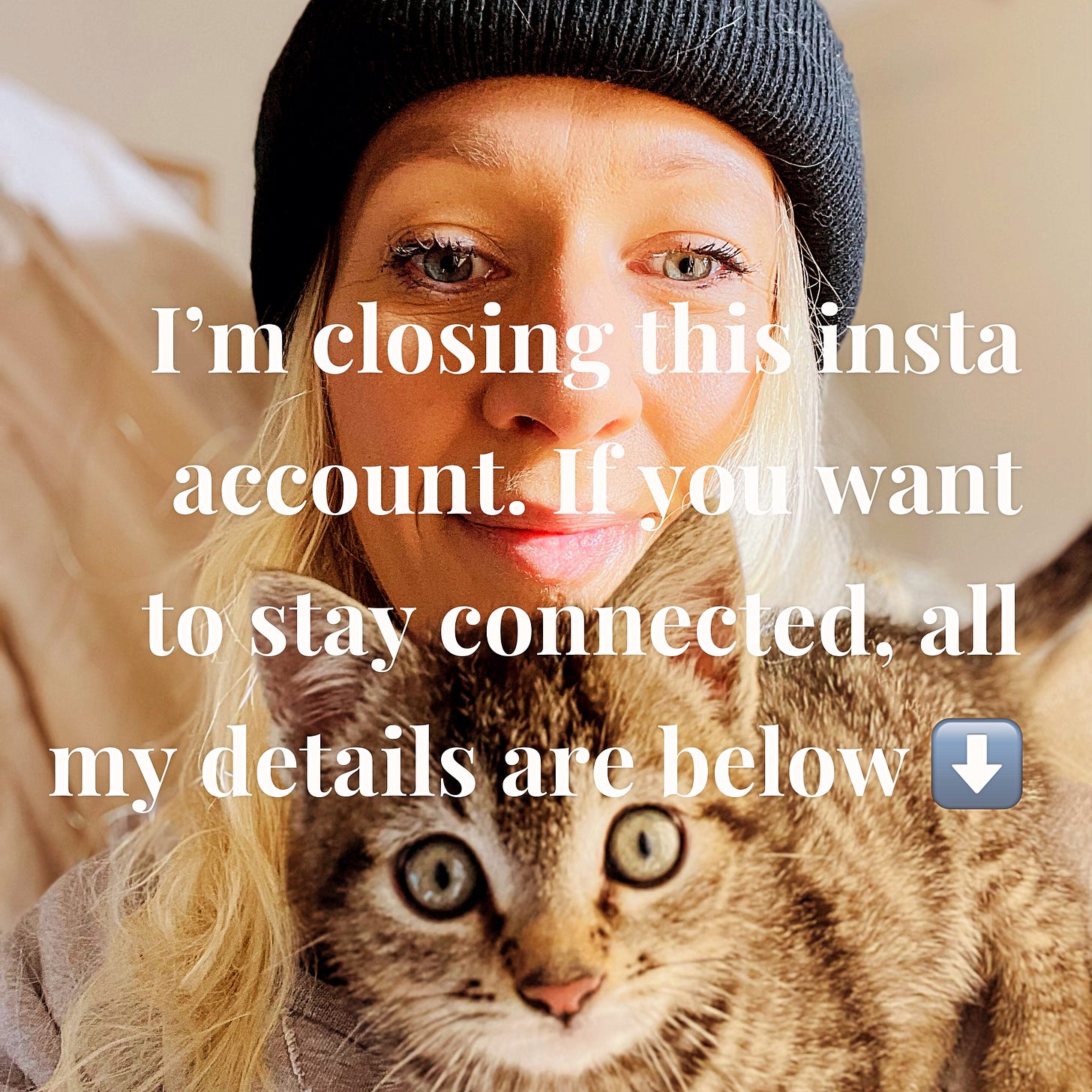The 'Little Things' Challenge, Designing your Environment, and Thriving with ADHD
So, here we are… the brand new Newsletter.
Do you love it, or hate it?
Do you know someone who’s story or expertise would make a brilliant feature?
The ‘Little Things’ Challenge
We all know the little things we should be doing, in life & in business, that make it all a bit easier. The trouble is, with ADHD it can be *very* hard to find the motivation, or enthusiasm, to do those things.
But… there are ways we can trick our brains.
Accountability & Competition are two ways to convince ourselves to do the little things we often avoid.
Your mission, if you choose to accept it, is to tell us all that you’ve committed to doing the ‘thing’, then share a photo / meme / big thumbs up, once you have.
Share in the Facebook Group here, or tag @HyperactiveLiving on Insta
So… This Week’s ‘Little Things Challenge’ -
Step away from the screen & go outside.
Let’s do the little things together!
What I’ve learned this week
Physical environments can be designed to be neuro-inclusive
As I’ve been busily recording all the podcast episodes for the next series, I sat down with Debra Presley of Diverse Nation to talk about environmental design.
Did you know that there are a tonne of things that can be done when building, renovating or decorating, that can make a space more comfortable for neurodivergent people?
Sofas & Chairs - if they’re not against a wall, some autistic people will feel very anxious.
Corridors - If they’re too straight & long, with no features to break up the lines, people with dyspraxia will struggle with visual processing.
Electrical Wires - If they’re in the walls next to the pillows, the almost-silent buzz will keep ADHDers awake all night.
The list goes on, but it’s given me real pause for thought now I’m renovating my own house.
I bought a hanging chair, because we can’t afford to spend £££s on furniture yet, but I’ve found I’m a million times more productive now I have it.
Debra says this is perhaps because I can move, fidget and sit comfortably at my desk from a variety of positions, which actually allows me to focus better.
It got me thinking about Access to Work, and the interview I recorded with Daley Jones, Met Police Detective, a few months ago.
Many people will go to Occupational Health and ask for support, but don’t actually know what kind of adjustments would help them… I know that I certainly don’t (If I did, I would’ve tried them by now)!
Debra is working away on a book about neuro-inclusive design, that should be out next year, and you can hear all the details, evidenced-based research and her top tips when the podcast restarts in a couple of weeks.
How to Thrive…
…In a neurotypical world
Since putting more of myself (and my ADHD) out there, I’ve connected with so many people who have chosen to take a *slightly* non-typical direction in life. There are entrepreneurs, self-employed, freelancers & side-hustlers. There are weird & wacky hobbies & hyper-fixations, and lifestyle choices that aren’t (what the normal people would call) ‘conventional’.
In this part of the newsletter, I’m going to share some of their stories & mine, and offer resources, info & tips for those of us who choose to take a different path in life.
Whether you’re starting your own business, or about to quit your job, buy a van & travel the world, or trying to manage your mind, in between a family, career and life.
These stories should inspire & empower, and help you figure out the finer details of how to do it yourself.
Work Smarter Not Harder
Last time I told you about all the projects & passions I’m trying to juggle and how is wasn’t going well.
If you’re anything like me, you’ll have started a new Insta, a new website, a new Tik Tok (and sometimes even a new bank account) before the idea has fully formed in your brain.
I love this ADHD enthusiasm… but it means that I’m now trying to juggle a million & one accounts and spend my days swiping between them all, chasing my tail, getting distracted, and failing to get anything meaningful done.
So… if you’re the same, here are my suggestions -
Close down the random social media accounts about projects that don’t bring you money or joy
If you only talk about Project A on Insta & Project B on LinkedIn, stop. You’ve got a massive network. Tell the Insta followers about the very professional project. Tell the LinkedIn network about your artistic side hustle.
Utilise your network for accountability & clarity. I’ve just spent an ‘Inspiration Weekend’ brainstorming business ideas with my entrepreneur mates, holding up our projects to one another for inspection & reflection. I now have clearly defined goals, and a person who’s going to check up I’ve worked on them, next month
Speaking of, define your goals. Drill down to the smallest steps you need to take. Put these into an online calendar.
Write a list of things that aren’t, in any way, moving you towards your goals. Stick it on your wall, you phone screen, your forehead. Less of these things.
If you need an extra push, body doubling sessions are great. Schedule a meeting with a friend online, have a five minute chat about your goals for the session, then get down to work. And if you don’t know who to ask to do this with, message me!







